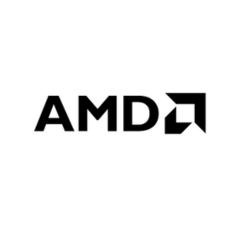WHAT YOU DO AT AMD CHANGES EVERYTHING
At AMD, our mission is to build great products that accelerate next-generation computing experiences—from AI and data centers, to PCs, gaming and embedded systems. Grounded in a culture of innovation and collaboration, we believe real progress comes from bold ideas, human ingenuity and a shared passion to create something extraordinary. When you join AMD, you’ll discover the real differentiator is our culture. We push the limits of innovation to solve the world’s most important challenges—striving for execution excellence, while being direct, humble, collaborative, and inclusive of diverse perspectives. Join us as we shape the future of AI and beyond.
Together, we advance your career.
SOFTWARE DEVELOPMENT ENGINEER 2
THE ROLE:
As a core member of the team, you will play a pivotal role in optimizing and developing deep learning frameworks for AMD GPUs. Your work will be instrumental in enhancing GPU kernel performance, accelerating deep learning models, and enabling training and inference at scale across multi-GPU and multi-node systems. You will collaborate across internal GPU software teams and engage with open-source communities to integrate cutting-edge compiler technologies and drive upstream contributions that benefit AMD’s AI software ecosystem.
THE PERSON:
Skilled engineer with strong technical and analytical expertise in C++ development within Linux environments. The ideal candidate will thrive in both collaborative team settings and independent work, with the ability to define goals, manage development efforts, and deliver high-quality solutions. Strong problem-solving skills, a proactive approach, and a keen understanding of software engineering best practices are essential.
KEY RESPONSIBILITIES:
- Optimize Deep Learning Frameworks: Enhance performance of frameworks like TensorFlow, PyTorch, and SGLang on AMD GPUs via upstream contributions in open-source repositories.
- Develop and Optimize Deep Learning Models: Profile and tune large-scale training and inference models for optimal performance on AMD hardware.
- GPU Kernel Development: Design, implement, and optimize high-performance GPU kernels using HIP, Triton, or other relevant tools for AI operator efficiency.
- Collaborate with GPU Library and Compiler Teams: Work closely with internal compiler and GPU math library teams to integrate and align kernel-level optimizations with full-stack performance goals.
- Contribute to SGLang Development: Support optimization, feature development, and scaling of the SGLang LLM framework across AMD GPU platforms.
- Distributed System Optimization: Tune and scale performance across both multi-GPU (scale-up) and multi-node (scale-out) environments, including inference parallelism and collective communication strategies.
- Graph Compiler Integration: Integrate and optimize runtime execution through graph compilers such as XLA, TorchDynamo, or custom pipelines.
- Open-Source Collaboration: Partner with external maintainers to understand framework needs, propose optimizations, and upstream contributions effectively.
- Apply Engineering Best Practices: Leverage modern software engineering practices in debugging, profiling, test-driven development, and CI integration.
PREFERRED EXPERIENCE:
- Strong Programming Skills: Proficient in C++ and/or Python, with demonstrated ability to debug, profile, and optimize performance-critical code.
- SGLang and LLM Optimization: Hands-on experience with SGLang or similar LLM inference frameworks is highly preferred.
- Compiler and GPU Architecture Knowledge: Background in compiler design or familiarity with technologies like LLVM, MLIR, or ROCm is a plus.
- Heterogeneous System Workloads: Experience running and scaling workloads on large-scale, heterogeneous clusters (CPU + GPU) using distributed training or inference strategies.
- AI Framework Integration: Experience contributing to or integrating optimizations into deep learning frameworks such as PyTorch or TensorFlow.
- GPU Computing: Working knowledge of HIP, CUDA, or other GPU programming models; experience with GCN/CDNA architecture preferred.
ACADEMIC CREDENTIALS:
- Bachelor’s and/or Master’s Degree in Computer Science, Computer Engineering, Electrical Engineering, or a related field.
- 1+ years of professional experience in technical software development, with a focus on GPU optimization, performance engineering, and framework development.

